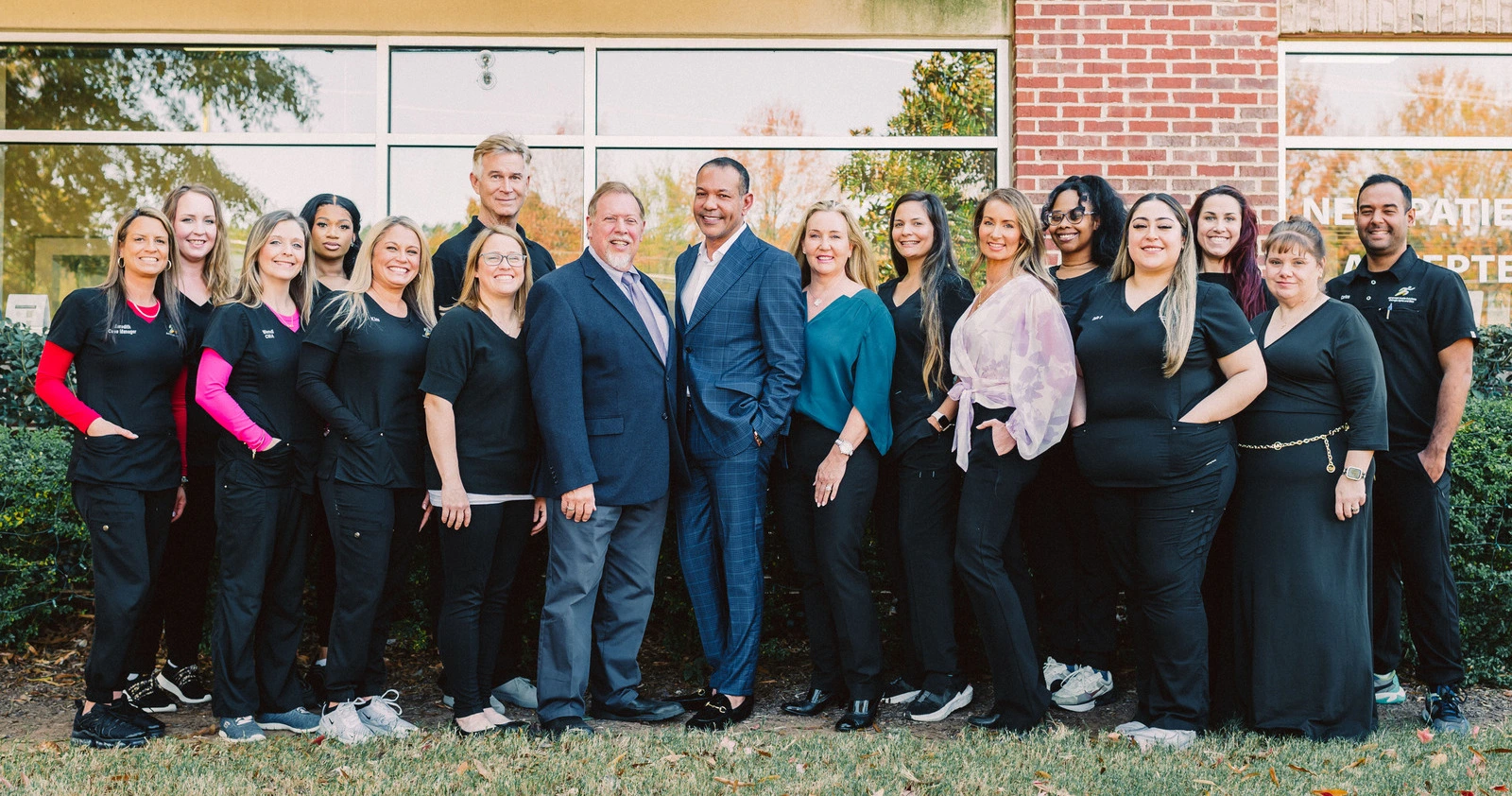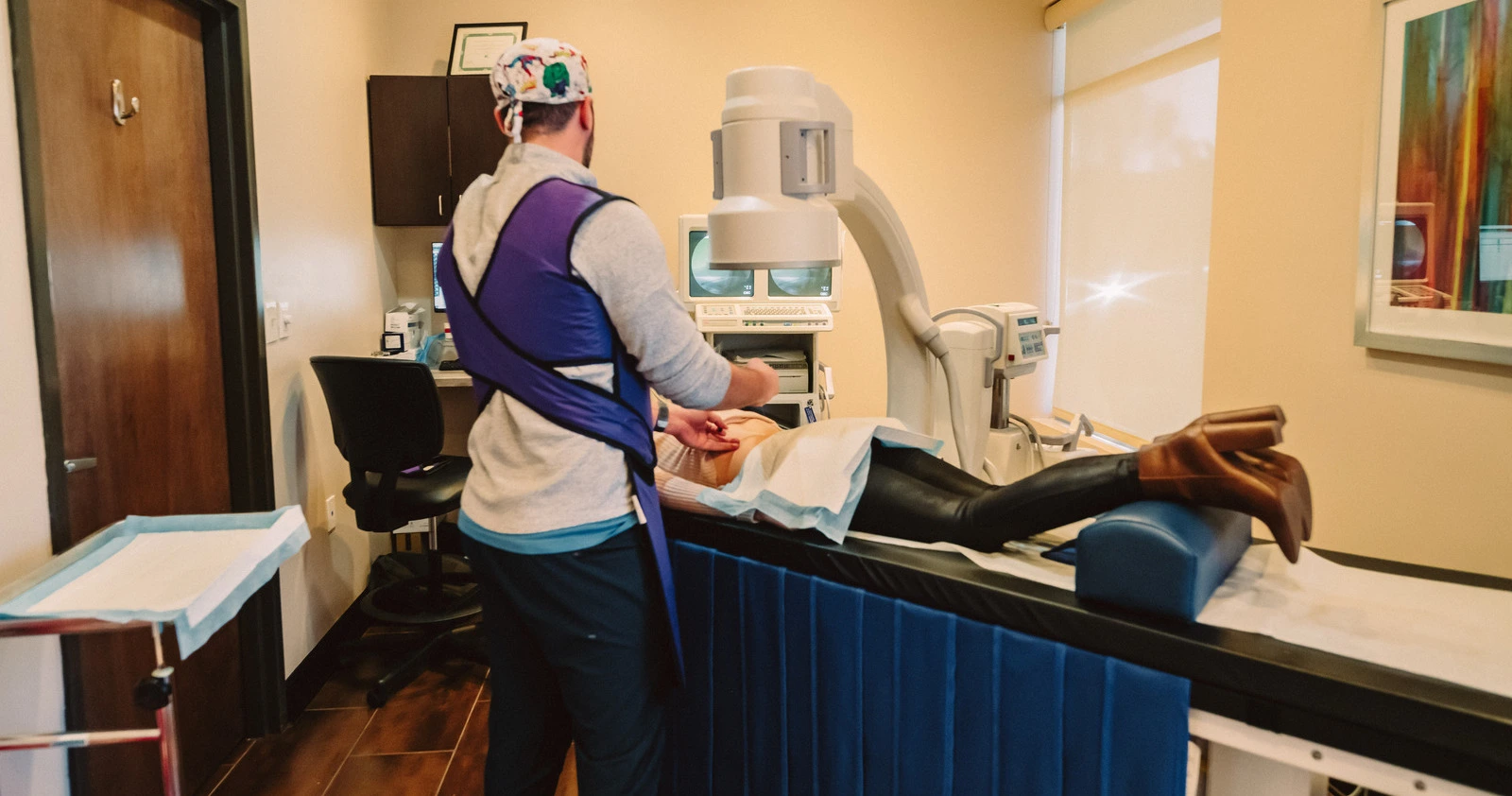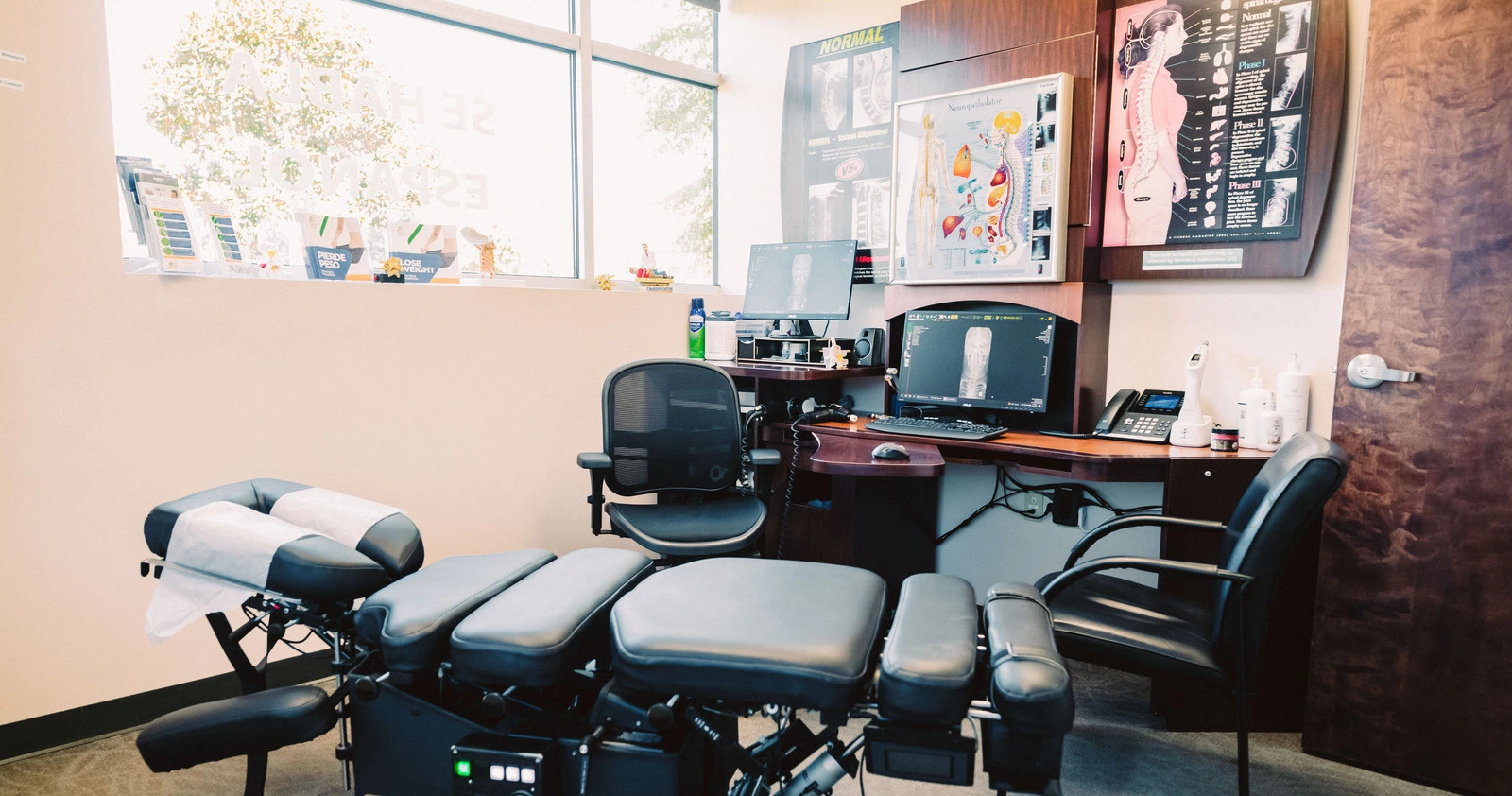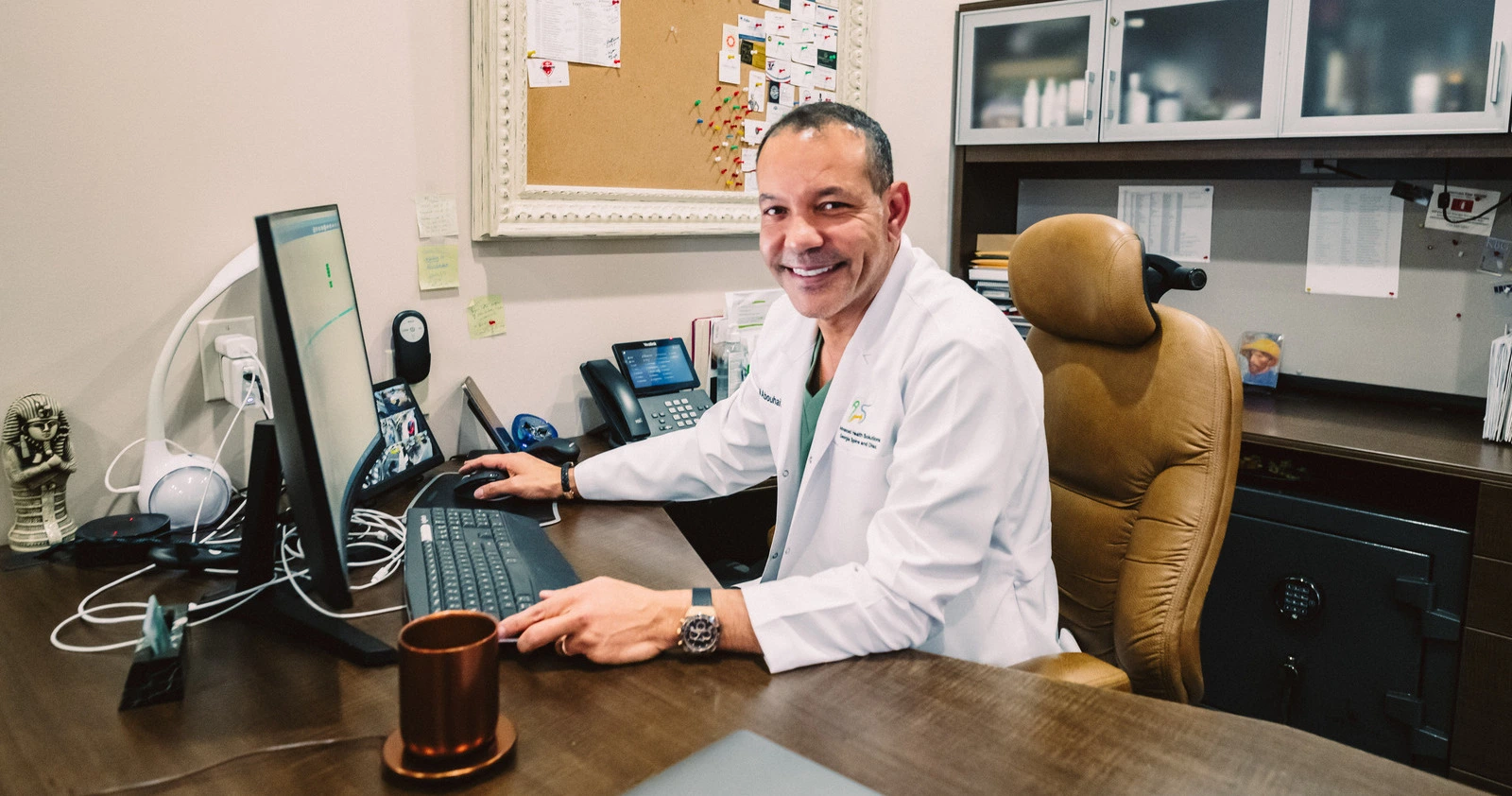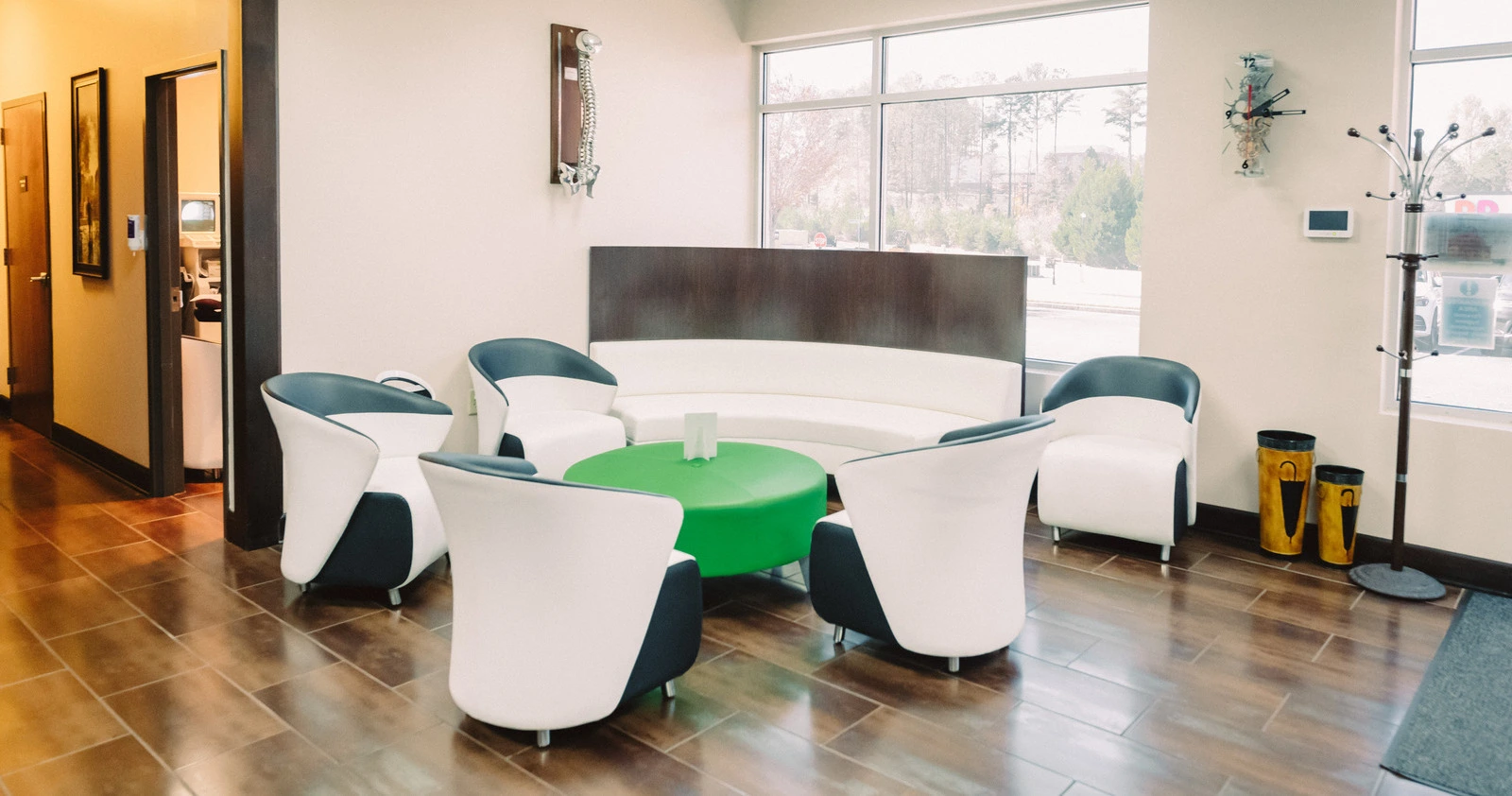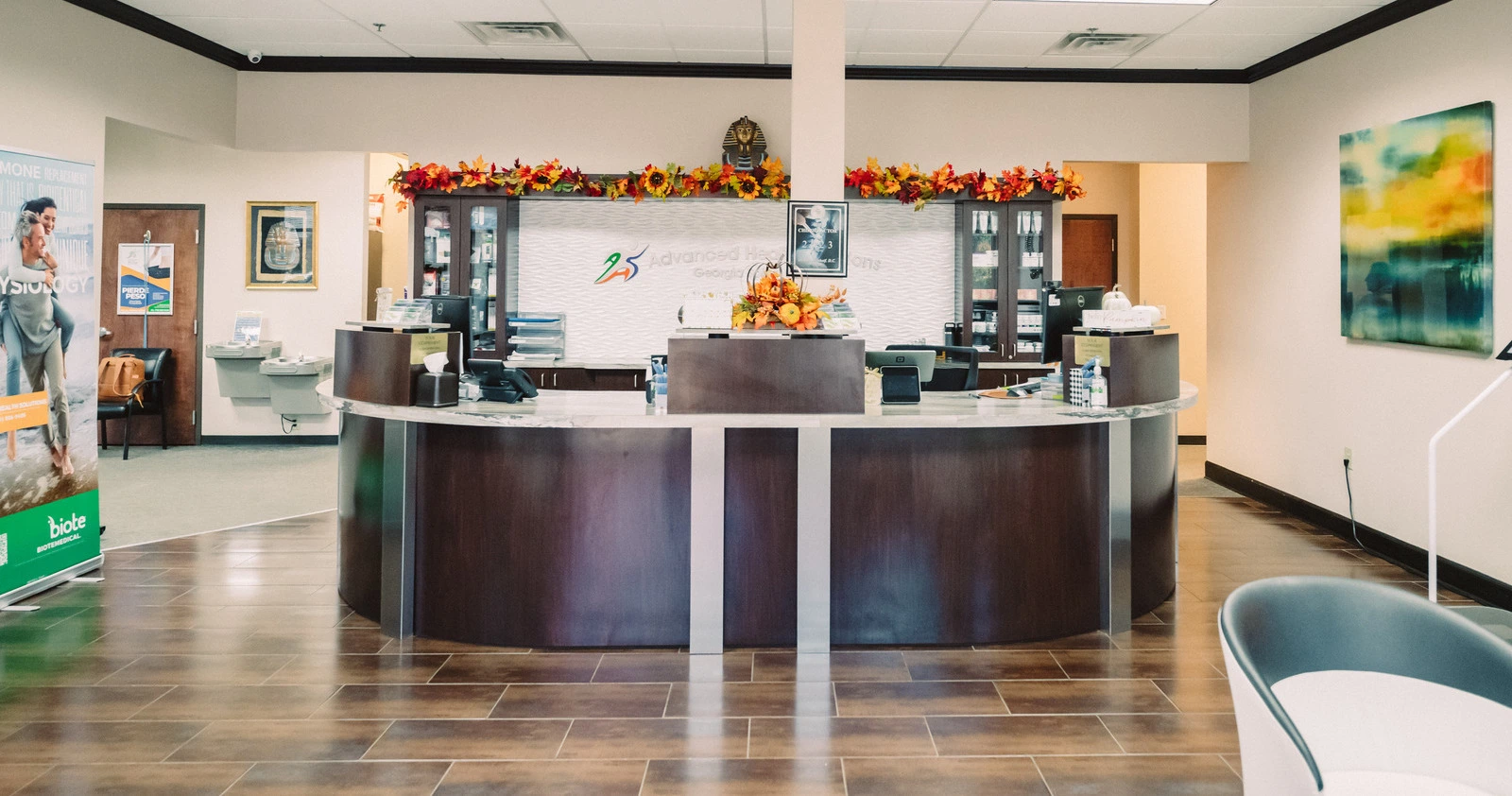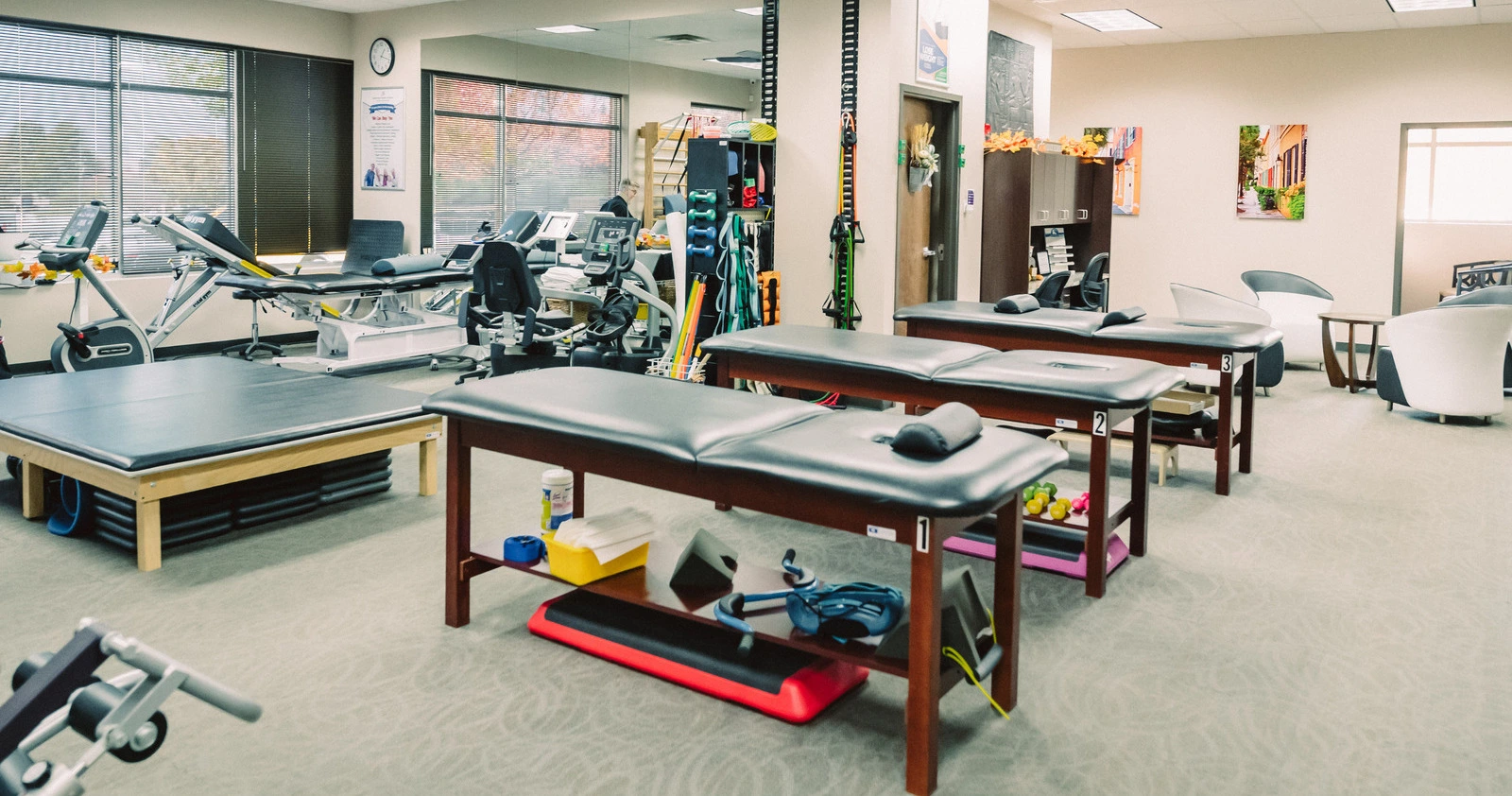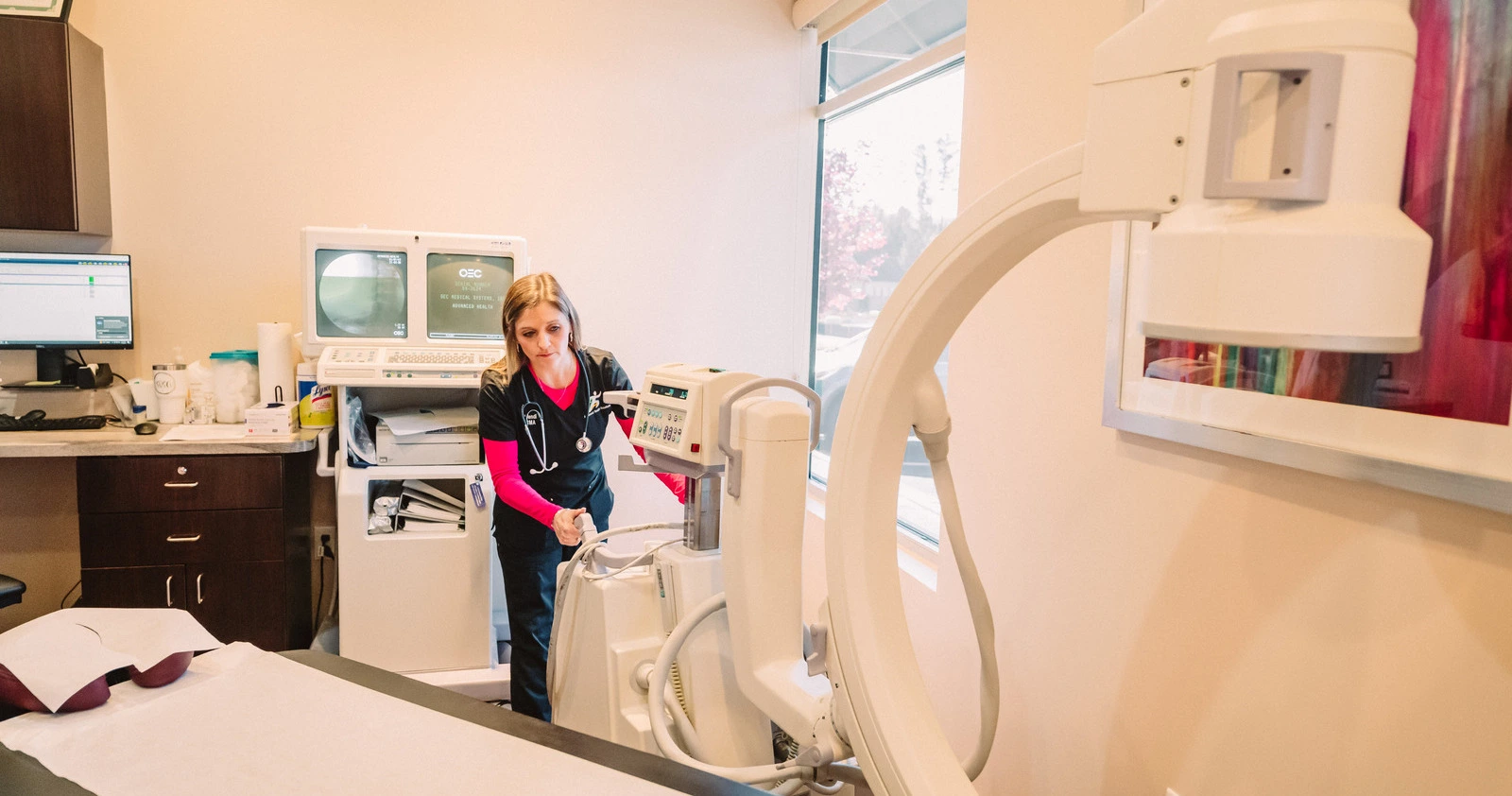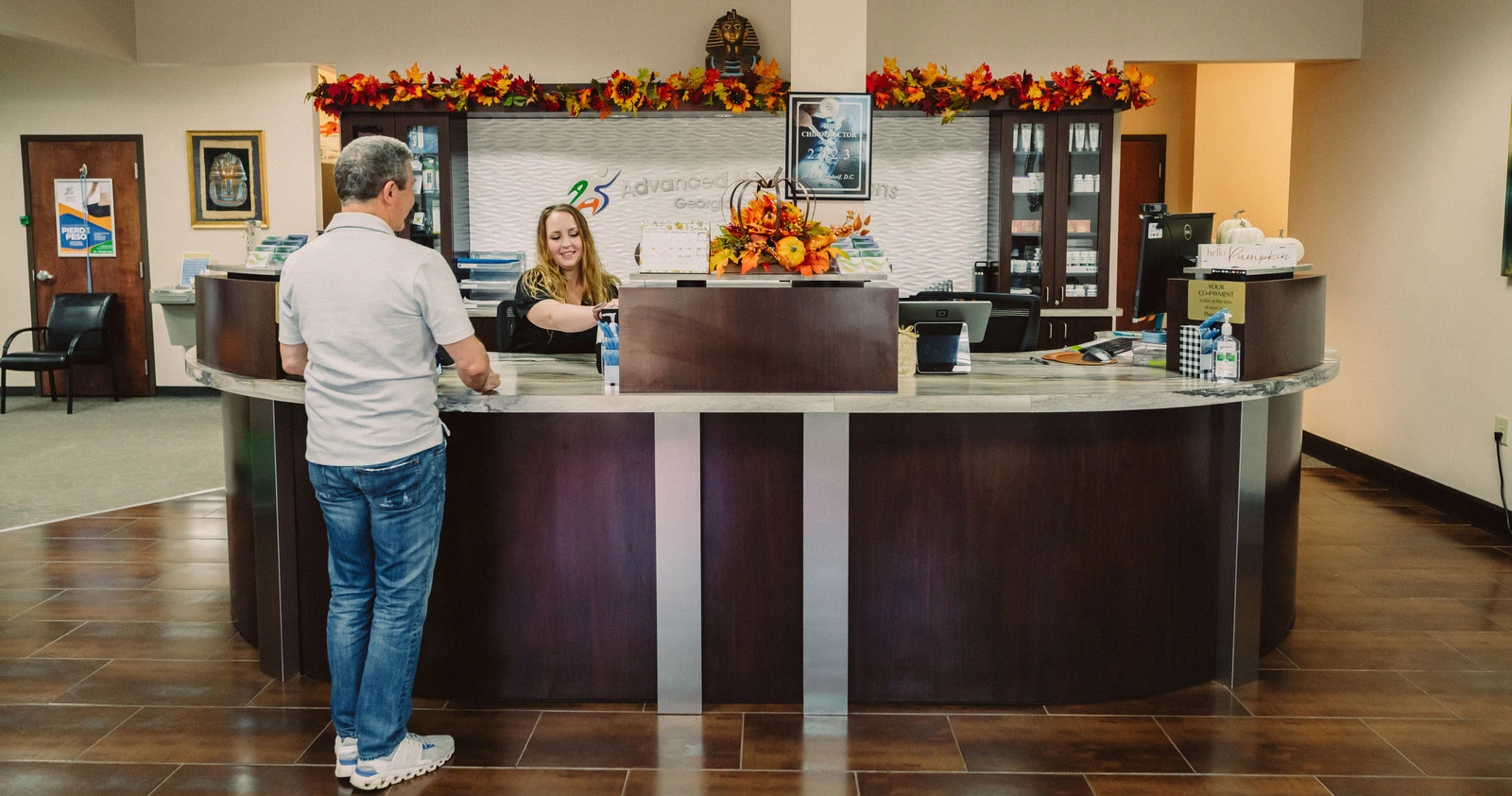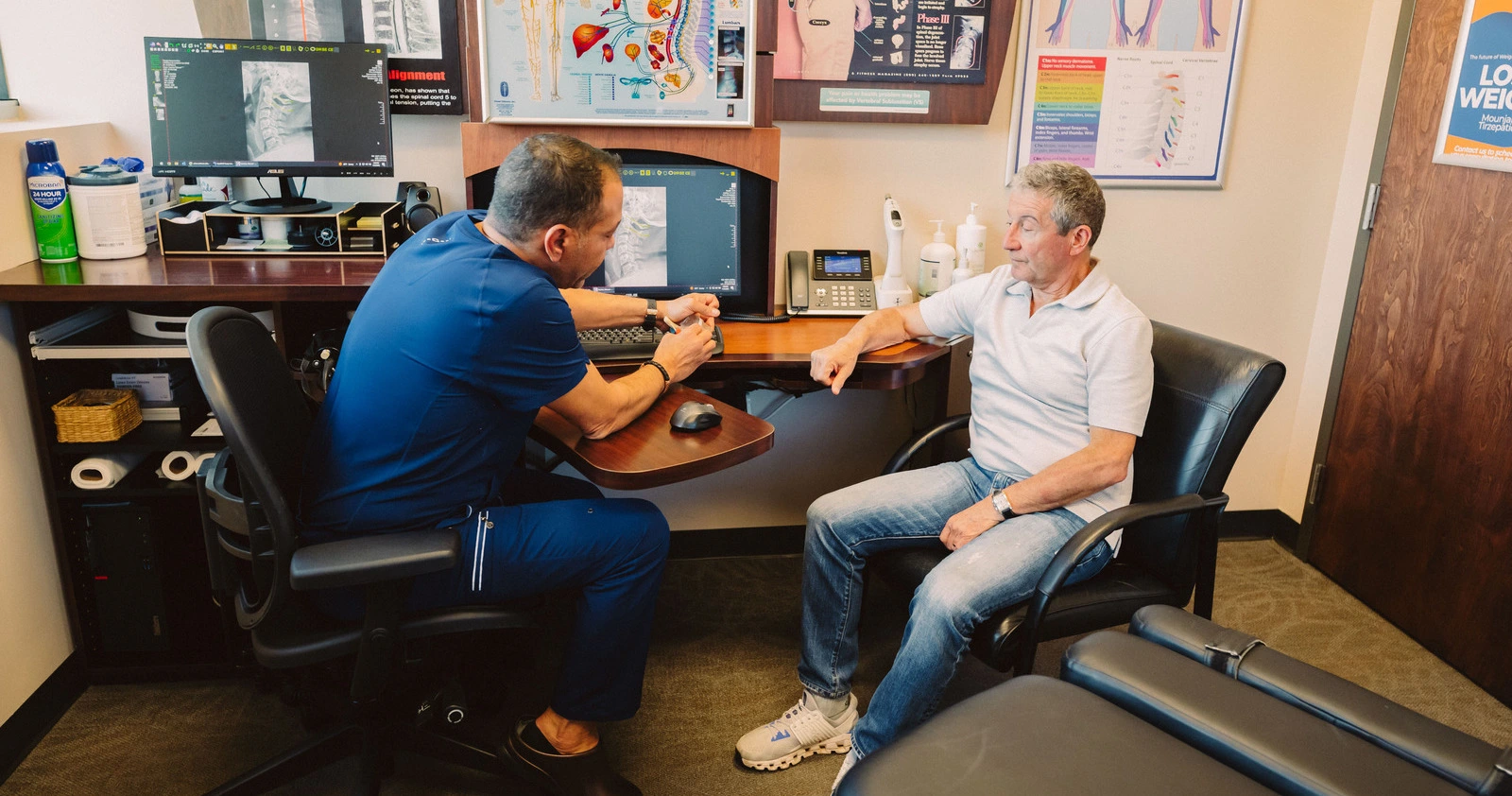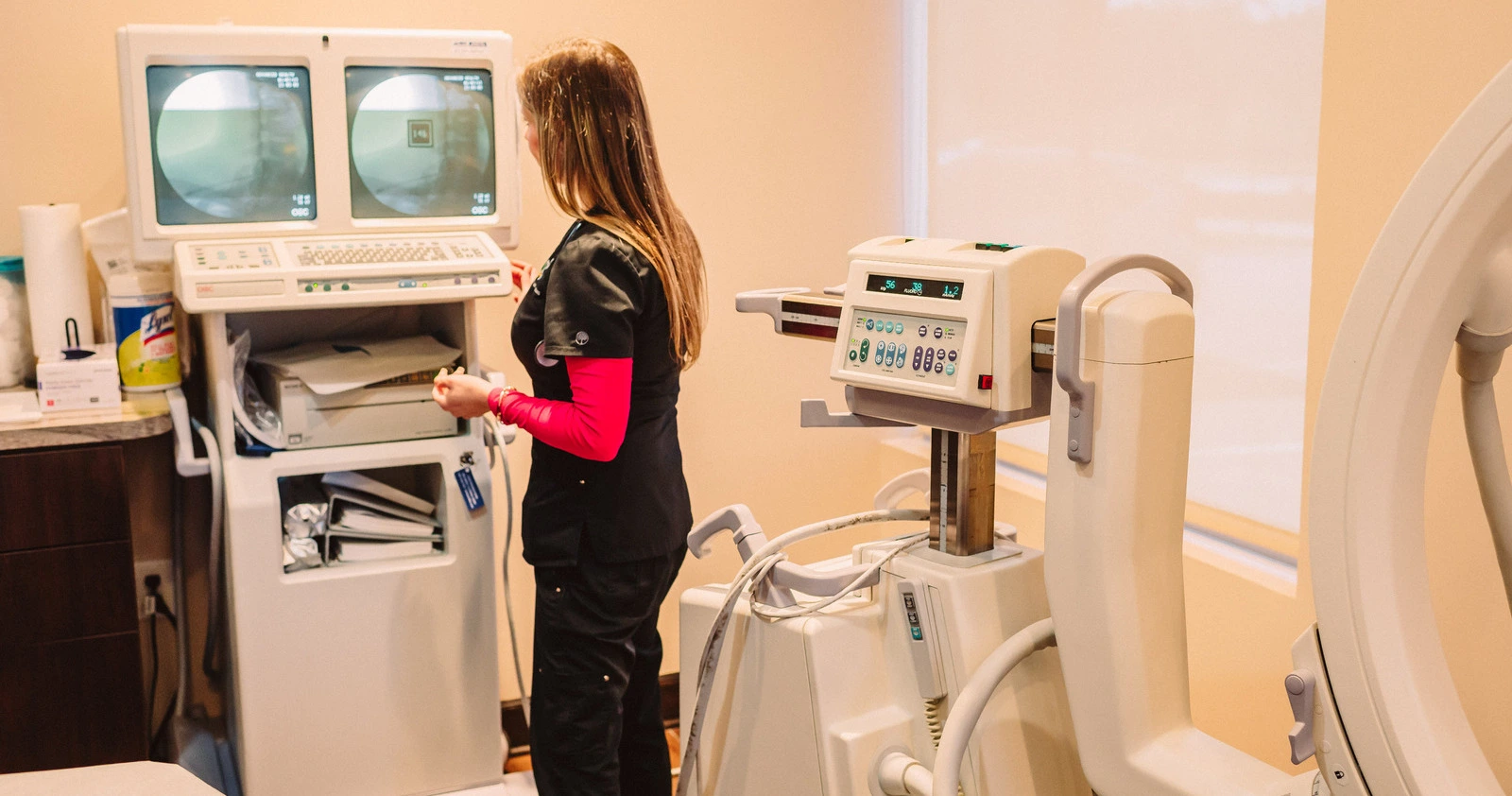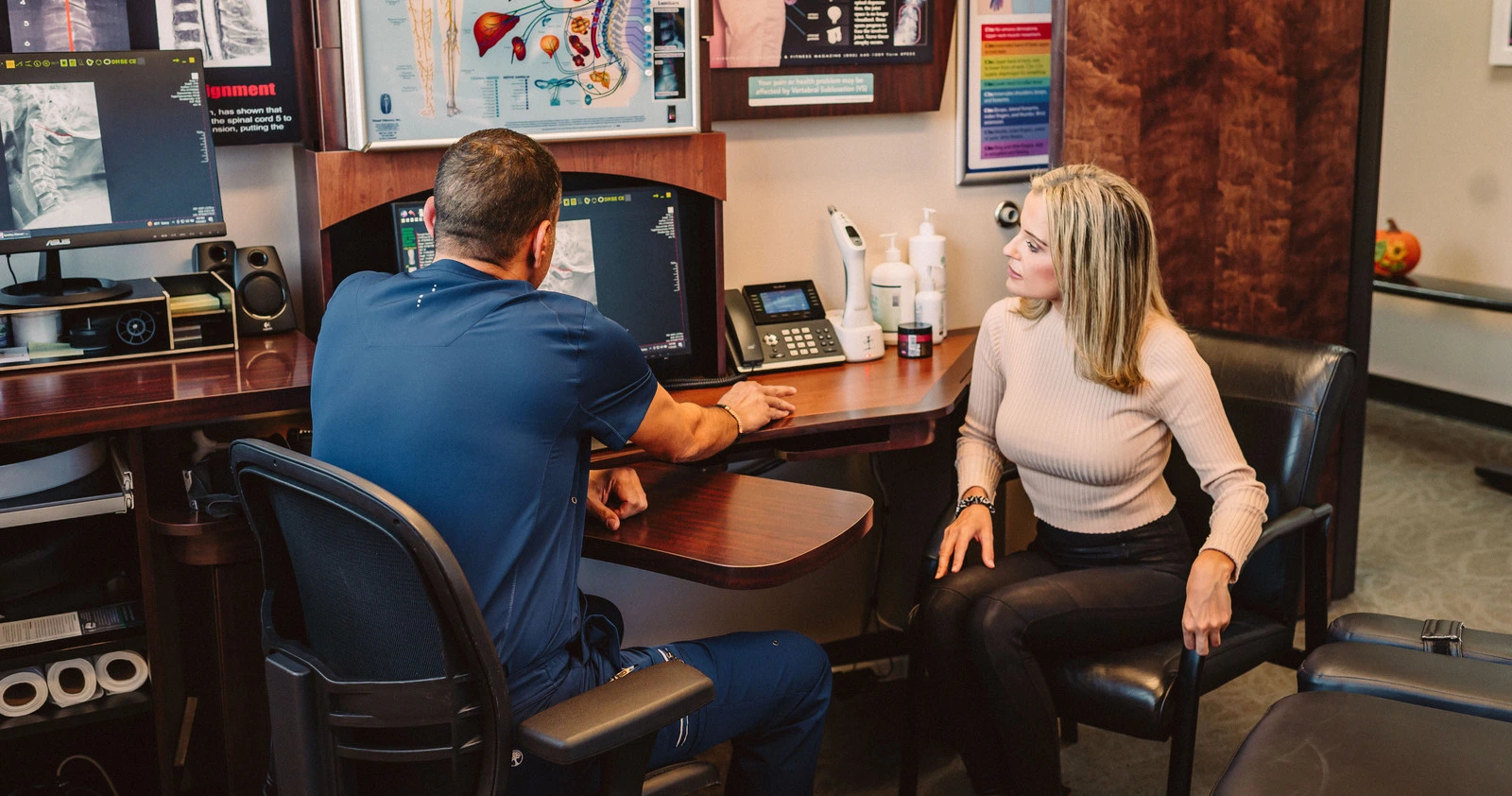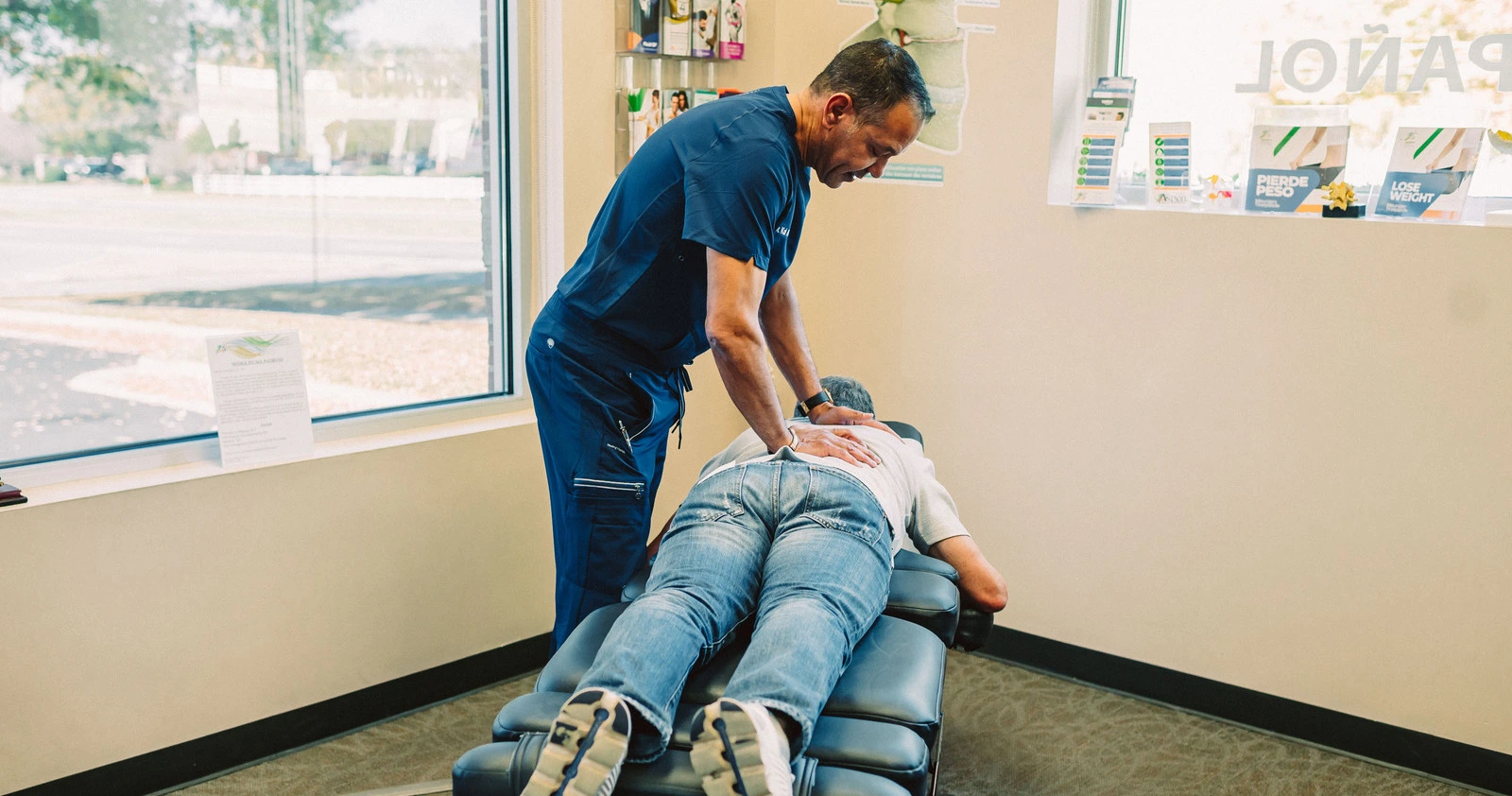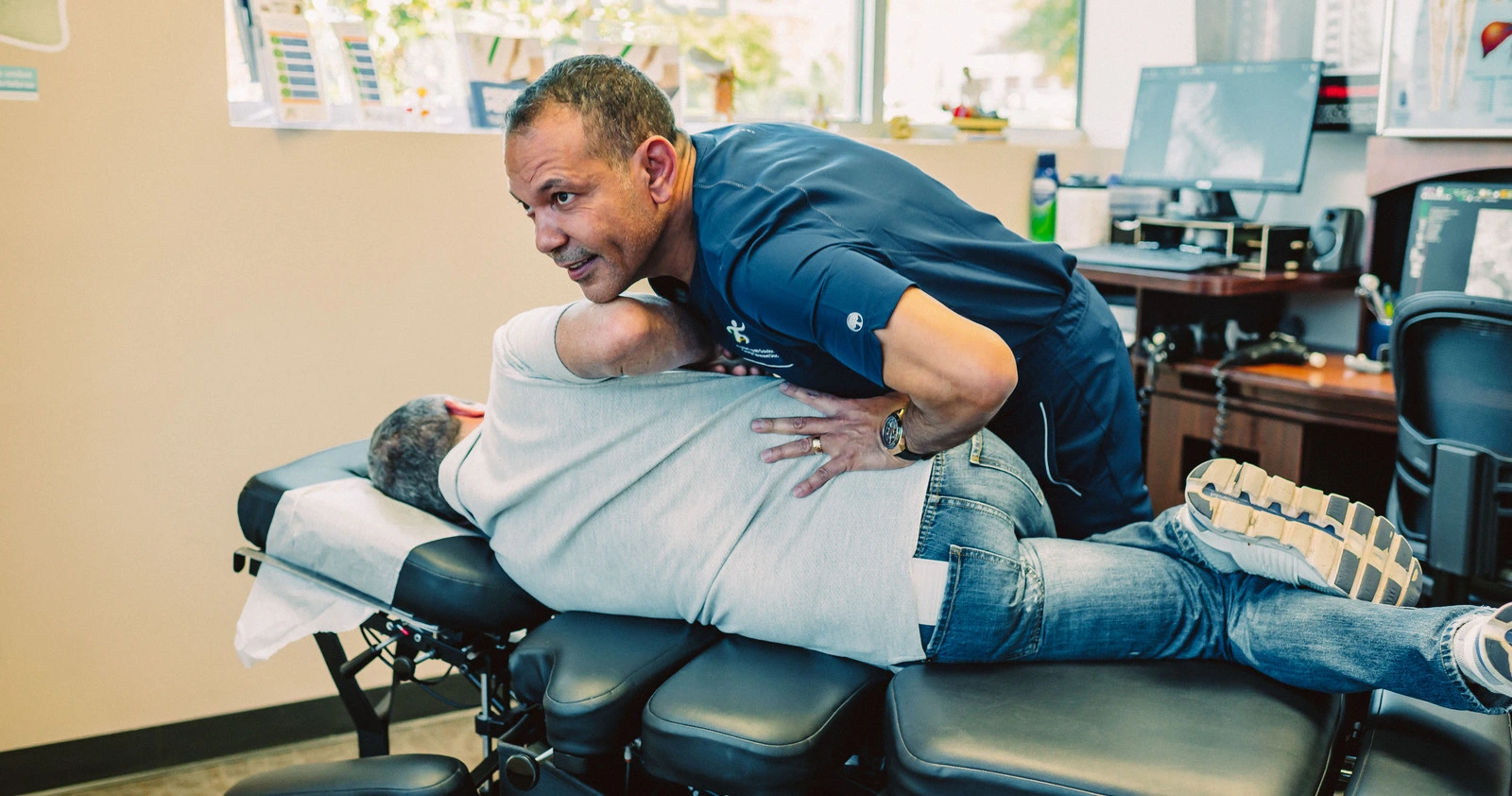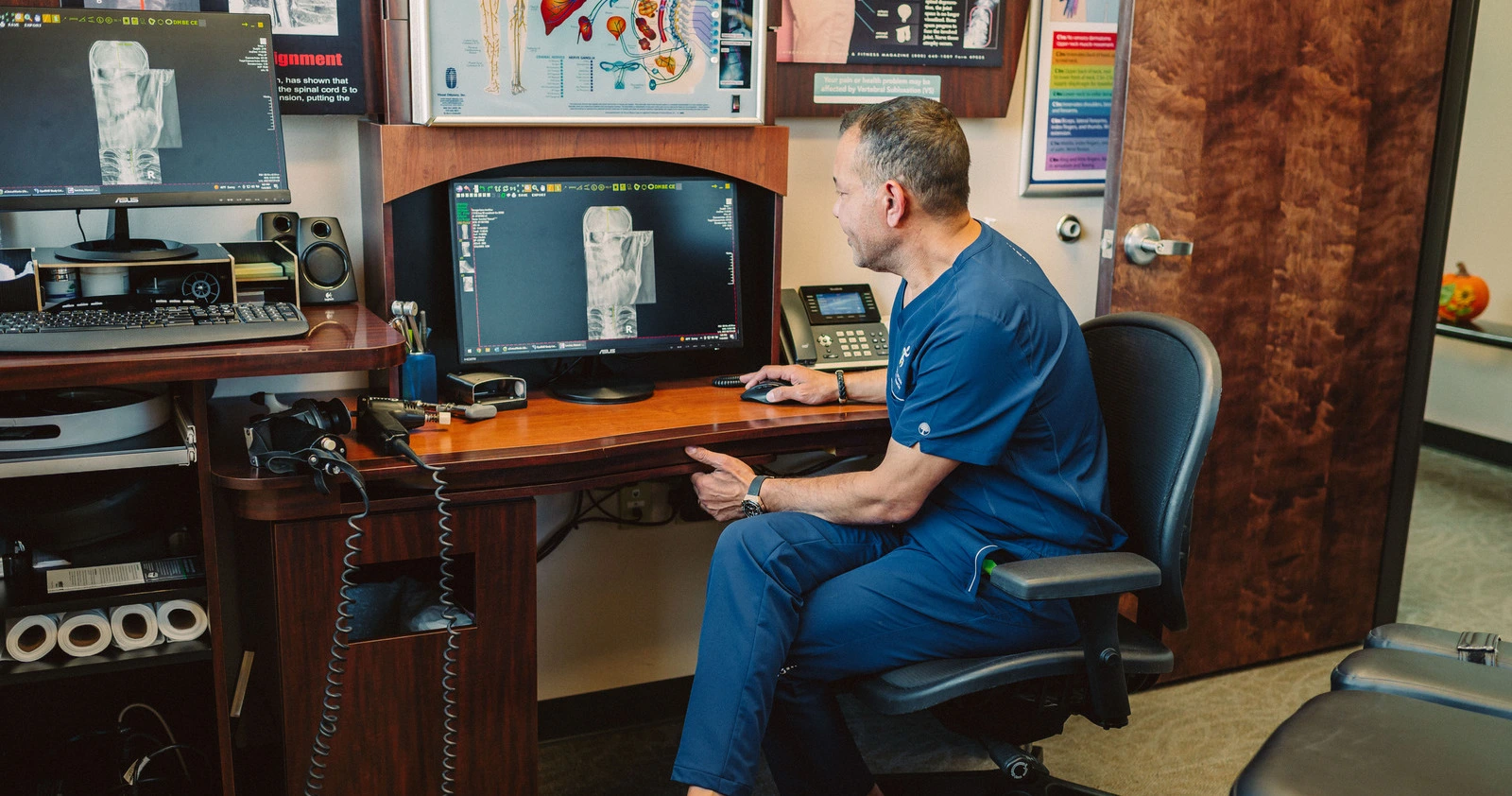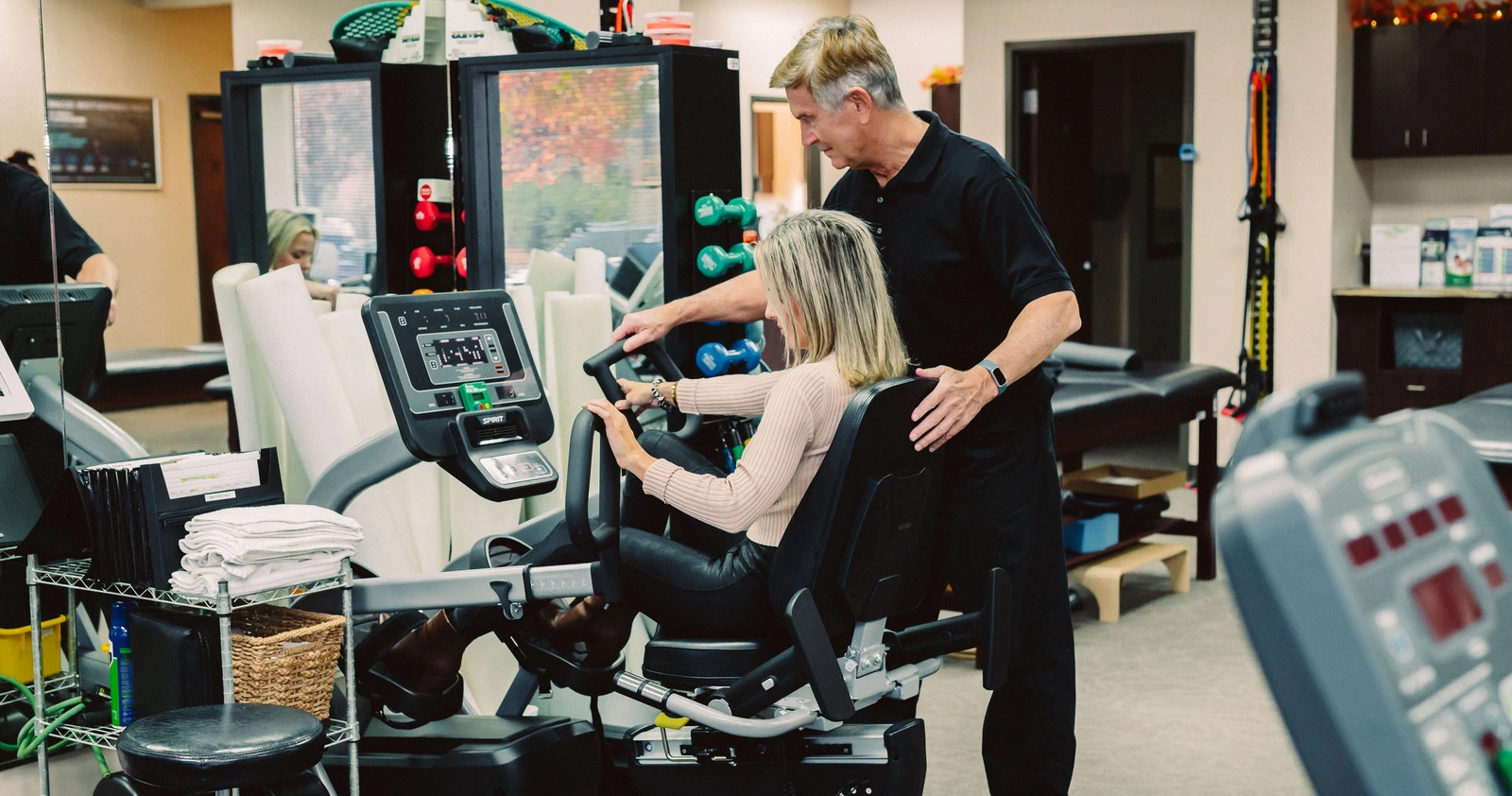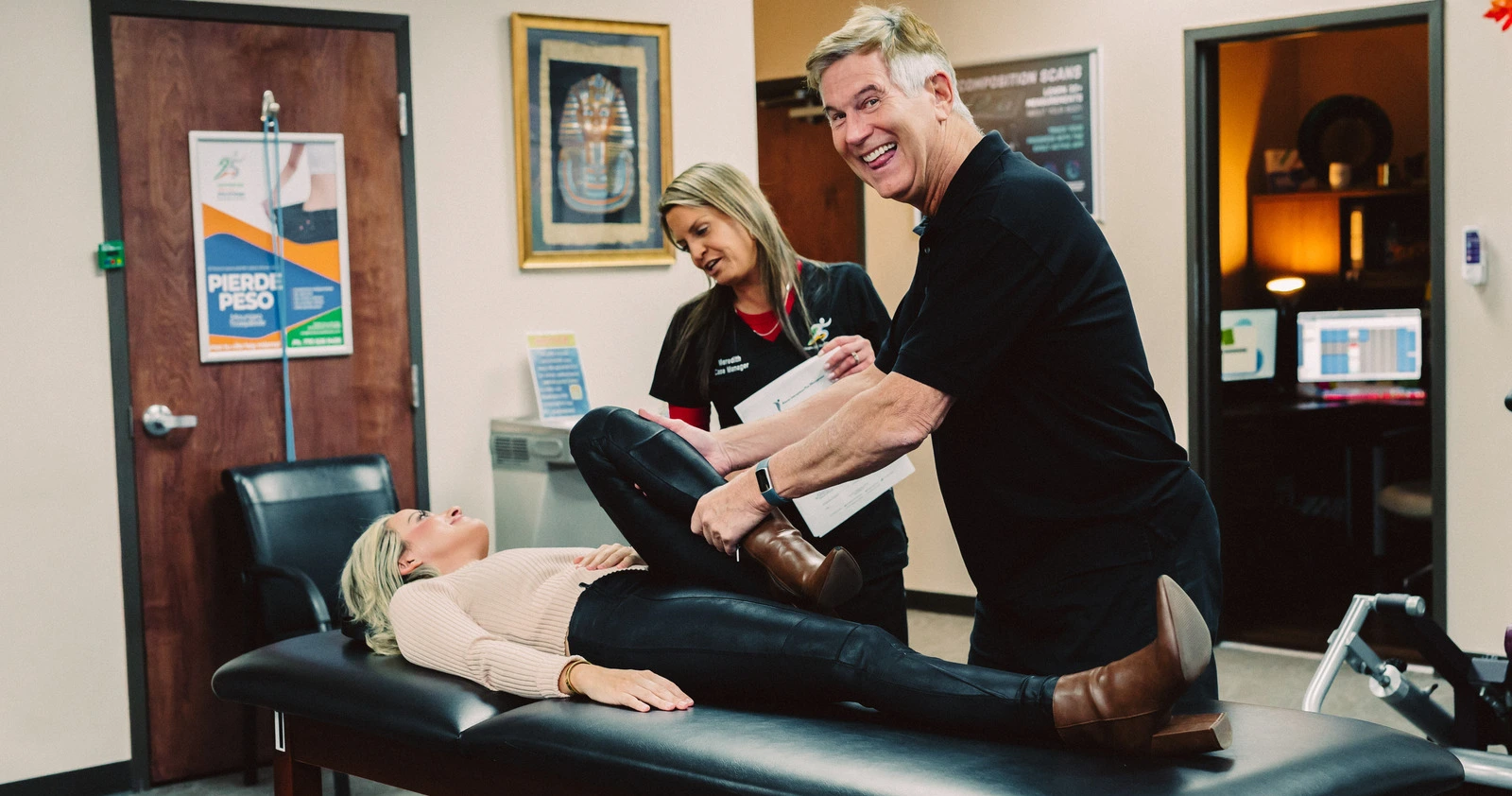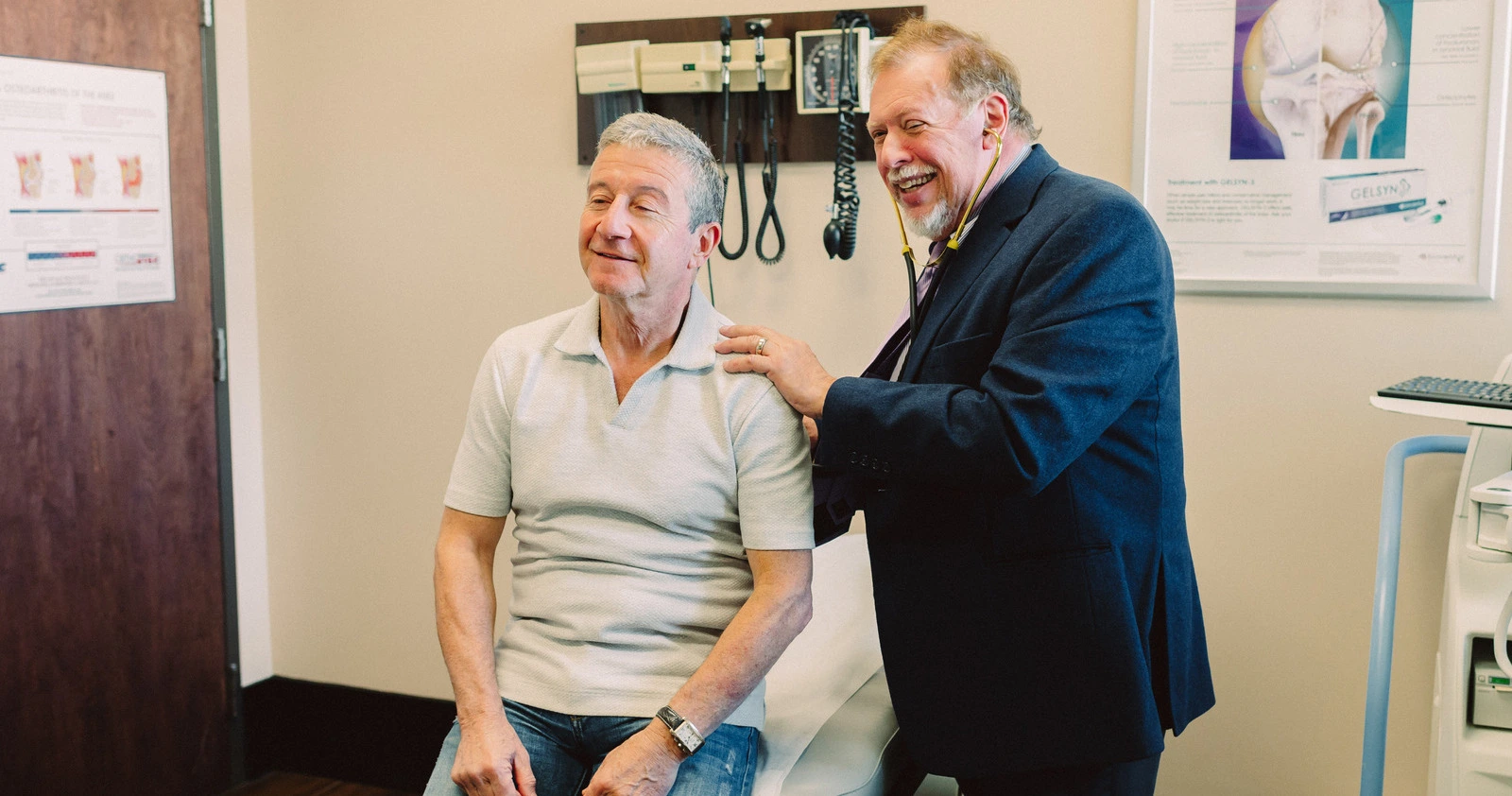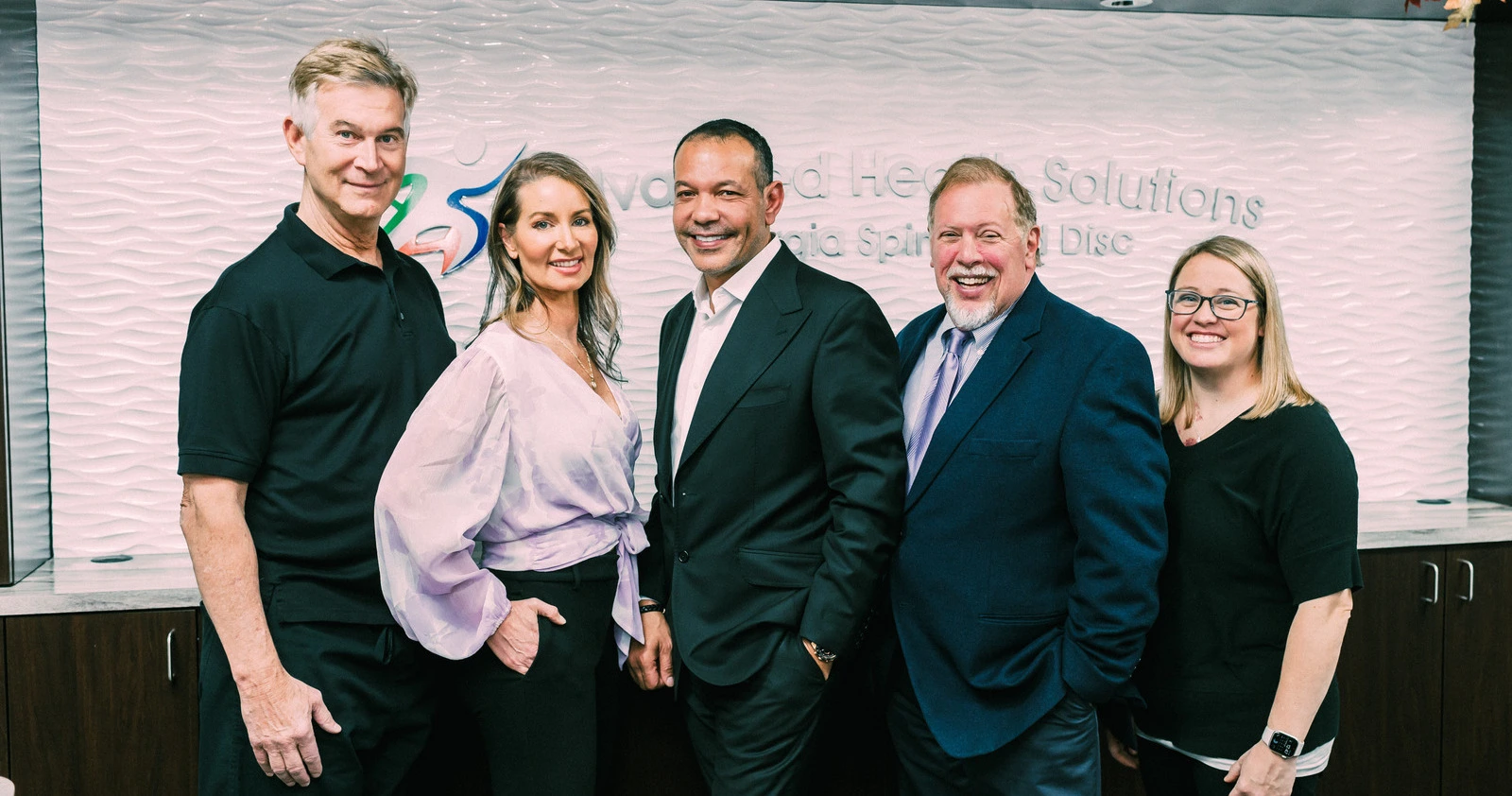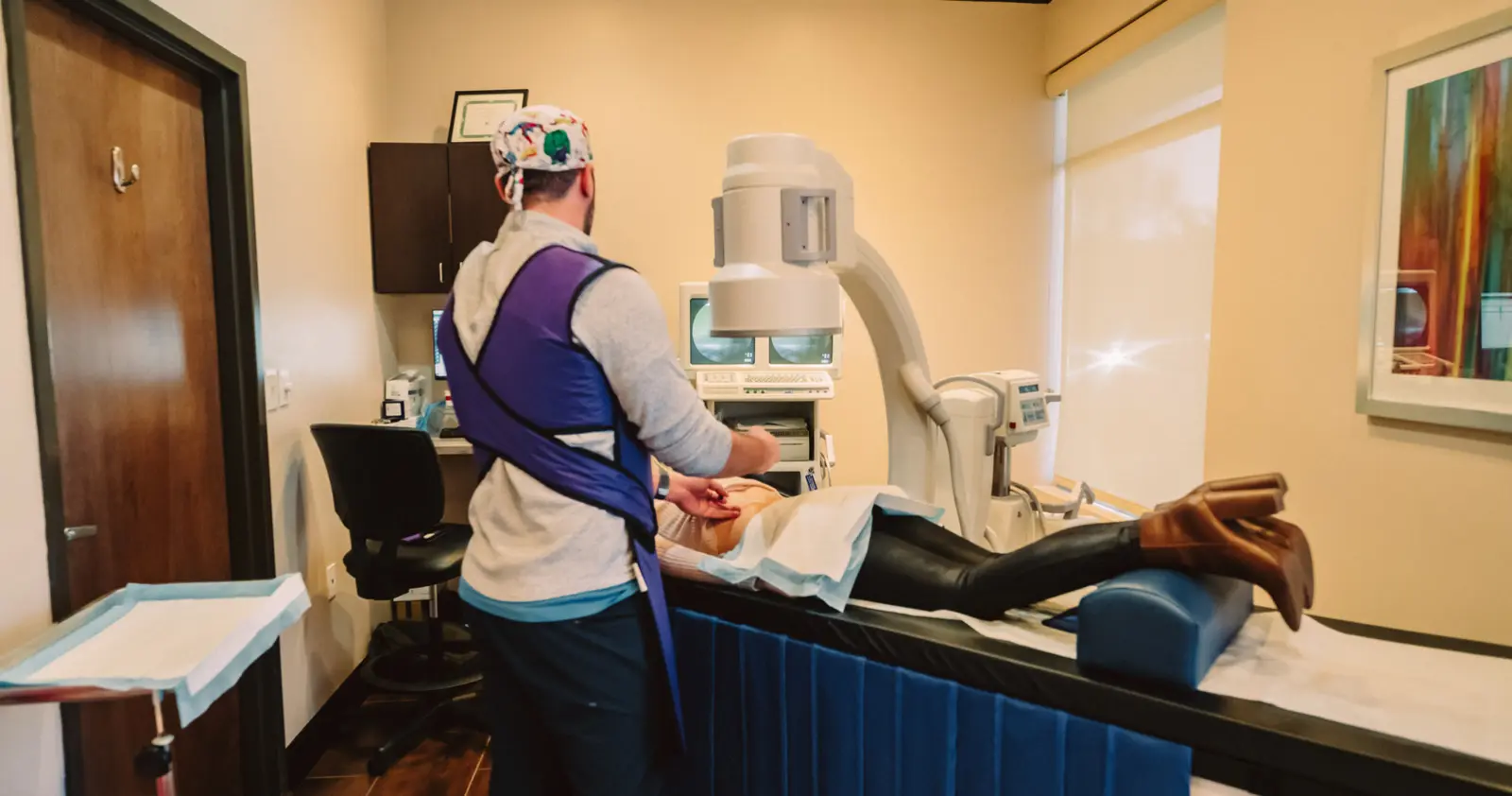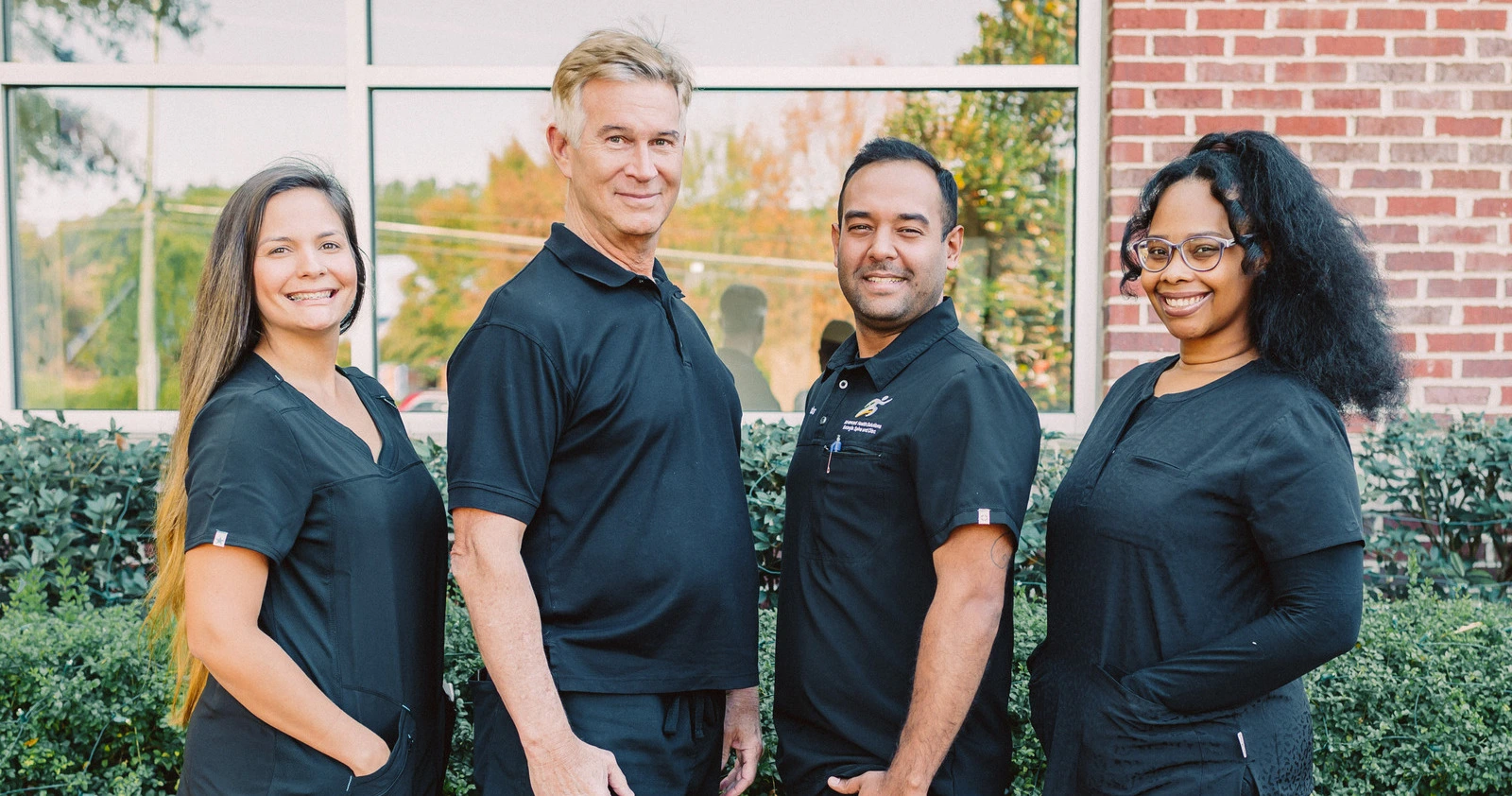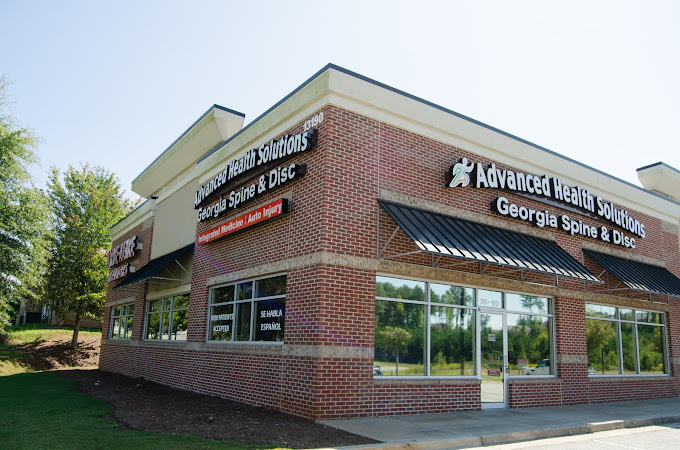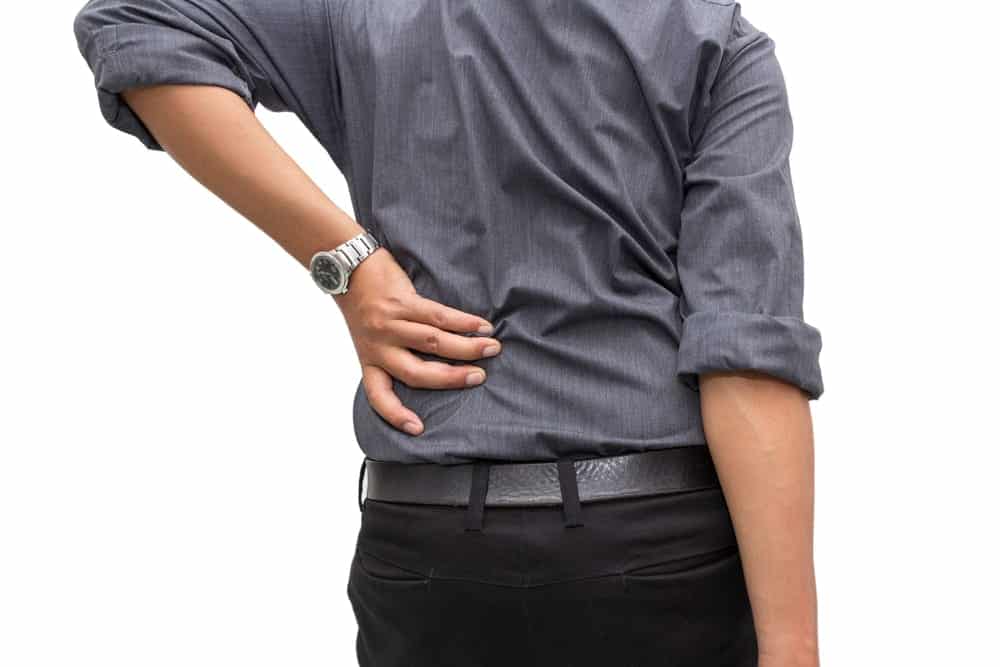
Woodstock Herniated Discs Treatment
Herniated disks refer to a condition that results from misalignment of one of the disks (rubbery cushions), sitting between the individual bones (vertebrae) that are stacked one on top of the other to make up your backbone or spinal column. Fortunately, at Advanced Health Solutions – GA Spine & Disc, we provide Woodstock herniated discs treatment that is safe and effective.
Spinal disks are round, flat gel-filled ligaments that act as a cushion in between each of the vertebrae in your spine. They have a soft, jellylike center (nucleus) encased in a tougher, rubbery exterior (annulus).
A herniated disk (sometimes referred to as a ruptured disk, or bulging disk, or slipped disk) occurs when the gel-like center of the disc ruptures out through a tear in the tough disc wall.
You can have a herniated disc anywhere along your spine, even in your neck, but it is most likely to occur in the lower back (lumbar vertebrae). A herniated disk can push against a nerve in your spine, and cause irritation.
Depending on the affected nerves, the pressure from the herniated disk can cause pain, numbness, tingling, or weakness in different parts of the body, including the neck, back, legs, and arms.
Most people who have a herniated disk don’t experience any symptoms at all. Herniated disks often don’t require surgery. With time, the symptoms will improve in approximately 9 out of 10 in a few days to weeks. However, you should avoid or limit physical activities or strenuous work for 2-3 days.
The pressure on the nerves in your spine due to a herniated disk can cause pain, numbness, and weakness in your arms, legs, neck, and back. Sometimes you may have severe symptoms that disrupt your life.
The good news is that the symptoms of a herniated disk usually begin to ease with time, probably in a few weeks.
Symptoms
Herniated disks are more common in the lower back (lumbar spine), but they can also occur in the neck (cervical spine). People experience different signs and symptoms depending on where the herniated disk occurred and whether it’s pressing on any nerve. The symptoms usually develop on one side of the body.
- Arm or leg pain – You will typically feel extreme pain in your buttocks, thigh, and calf if herniated disk occurs in your lower back. You might also feel pain in part of your foot. A herniated disk that develops in the neck will typically cause a lot of pain in the shoulder and arm. This pain might become more intense in your arm or leg, particularly when you sneeze, cough, or move into certain positions. Usually, the pain can be sharp or burning.
- Numbness or tingling – Herniated disk can cause numbness or tingling that radiates from the affected nerves in a specific body part.
- Weakness – When herniated disk affects the nerves in the spine, it tends to weaken the muscles. As a result, you may start to stumble or struggle to hold or life items.
You can experience no symptoms at all despite having a herniated disk. You may not even realize that you have it unless you go for spinal imaging tests.
When To See A Doctor
You should seek Woodstock herniated discs treatment if you have neck or back pain that travels down your leg or arm, or other symptoms, such as numbness, tingling, or weakness.
Causes
Disk degeneration, which is the gradual, aging-related wear and tear, is the most common cause of disk herniation. The flexibility of your spinal disks reduces as you age. Therefore, the disks become more prone to rupturing or tearing even with a slight twist or strain.
Most people who have a herniated disk cannot pinpoint its root cause. Sometimes, lifting heavy objects with your back muscles rather than your leg or thigh muscles can cause a herniated disk, as can heavy lifting that involves twisting and turning.
A person can suffer a herniated disk in a traumatic event such as a blow or a fall, but it rarely happens.
Risk Factors
Factors that can put you at risk for a herniated disk include:
- Weight – If you are overweight, the disks in your lower back are subjected to extra stress.
- Occupation – People who do physically demanding jobs are at higher risk of developing back problems. You are likely to have a herniated disk if your day-to-day work involves repetitive lifting, pushing, pulling, bending sideways, and twisting.
- Genetics – Some people inherit genes that predispose them to the risk of developing a herniated disk.
- Smoking – It is believed that smoking reduces the supply of nutrients and oxygen to the disk, and as a result, it can dry out, become less flexible, and break down more quickly.
Complications
Your spinal cord ends just above your waist. A group of long nerve roots resembling a horse’s tail (cauda equina) continues through the spinal canal. In most severe cases, a herniated disk can compress all the nerves in the entire spinal canal. Moreover, emergency surgency is rarely needed to avoid permanent paralysis or weakness.
You should seek immediate Woodstock herniated discs treatment if you have:
- Worsening symptoms – Pain, numbness, or weakness can become so severe to an extent that you’re unable to do your daily activities.
- Bladder or bowel dysfunction – Incontinence or difficulty urinating even with a full bladder due to cauda equina syndrome.
- Saddle anesthesia – Gradual loss of sensation affecting areas that touch a saddle – the back of legs, inner thighs, and area around the rectum.
Prevention
You can do the following to help prevent herniated disk:
- Exercise – Strengthened trunk muscles are vital for stabilizing and supporting the spine.
- Maintain good posture – The pressure on your spine and discs will reduce. When sitting for long periods, keep your back straight and aligned. Also, your legs – not your back – should do most of the work when lifting heavy objects.
- Maintain a healthy weight – The spine and disks become more susceptible to herniation due to excess weight that puts more pressure on them.
- Quit smoking – Avoid using any tobacco products.
Woodstock Herniated Discs Treatment
At Advanced Health Solutions – GA Spine & Disc, we offer safe and effective Woodstock herniate discs treatment that can help to ease your symptoms. Feel free to call us today at (770) 212-3991 or fill out our online contact form to book your appointment.
Woodstock Herniated Discs Treatment
